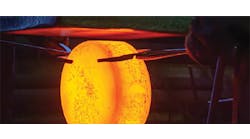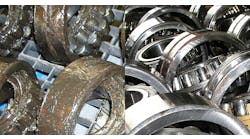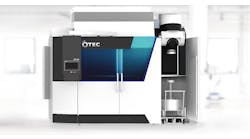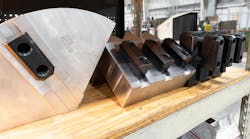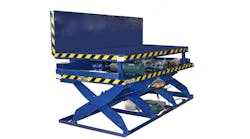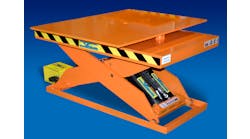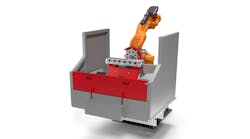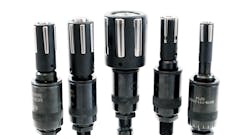Titanium represents something of a peak in the forging landscape — high-value raw materials turned into highly engineered products via highly demanding manufacturing sequences. The expectations are high too, and so a new conditioning process for titanium is sure to draw some interest for its cost-saving promise. The patented process offered now by MetCon LLC replaces the customary full surface grinding, machining, and acid pickling conditioning with a lower-loss, electrochemical treatment, which the developer claims improves ingot-to-finished product yield by 10%, to more than 20%.
The new process also accelerates material throughput, and it's environmentally sound, which adds to the cost and safety benefits.
Processing titanium ingot requires multiple steps of heating and shaping (by forging, rolling, or extruding) and then cooling. At each step the temperature changes cause a brittle, ceramic-like oxygen-enriched phase of titanium called alpha case to fully cover the surface of the metal.
As the metal cools from hot-working temperatures, surface cracks form which can extend into the material to a depth of 5% or more. The cracks are covered by alpha case, too. So that these cracks will not propagate deeper into the material with the next processing step, the titanium typically is subjected to grinding, machining, and acid pickling over the entire surface to the depth of the deepest crack. The material removed is waste, hazardous waste, or low-value scrap.
The MetCon electrochemical process addresses the alpha case layer by removing precise amounts of surface material using rectifier control. Instead of removing all material down to the level of the deepest crack tip, the MetCon process removes a much thinner layer that includes the vertical surfaces of the cracks.
The process attacks the edges of cooling cracks preferentially, eroding them without removing adjacent bulk metal. The cracks are opened and their edges are smoothed and feathered to blend with the surrounding metal. Unlike acid pickling, wherein cracks are simply etched deeper along with removal of the surrounding metal, the crack tip remains at the original depth.
The process also electrochemically conditions the crack tips, rounding and blunting the sharp points. The conditioned, feathered and rounded alpha case-free prior defects "heal" on the next hot working step rather than propagating further into the material. Because most of the surrounding metal is preserved, the result is a substantial increase in yield for both the conditioning step and the subsequent hot working step.
Since the earliest commercial production of titanium, conditioning has been done by the only means available—surface grinding, machining, and pickling. These subtractive procedures remove with each conditioning step 3-7% of the piece being processed. In comparison, the MetCon process removes much less material — 0.5-3% per conditioning step. Between ingot and finished product there are typically three to four hot working steps that require conditioning, and some products require more. Because the savings on each conditioning step are cumulative, the MetCon process can provide a titanium producer as much as 20% or more additional finished material. The increased saleable metal comes from the same size starting ingot with essentially no increase in manufacturing costs.
Also, the MetCon process is substantially faster and safer than traditional conditioning processes. Grinding and machining remove small amounts of material with each pass, generate heat as solid metal becomes swarf or dust that is an explosion hazard and must be carefully controlled and removed from the air. Titanium chips are highly flammable and the cause of numerous catastrophic plant fires.
Conventional processes also have material-removal limits: they must be repeated over the entire surface, or until reaching the bottom of the deepest cracks.
Elevated-temperature, HF or HNO3 pickling is sometimes used in conjunction with mechanical processes. Final product pickling may be specified by customers as a final surface cleaning, and pickling can deal with deposits or flaws left by grinding or machining. And, the pickling process introduces further time, cost, and safety considerations.
The MetCon process submerges the hot-worked titanium in electrolyte, in a large tank, with electrical currents and voltages removing the alpha case and opening the cooling cracks, rounding and blunting the crack tips. There is no hazardous grinding or machining dust, swarf, or chips. Removed material is absorbed by the electrolyte.
The electrochemical process is inherently faster than mechanical grinding or machining, and all surfaces are treated simultaneously. Multiple pieces can be treated at once and there are no technical restrictions to scaling the tank sizes larger. Material is ready for the next forming step five to 50 times faster than by traditional methods, accelerating work-in-process cycle times and relieving a typical production bottleneck.

